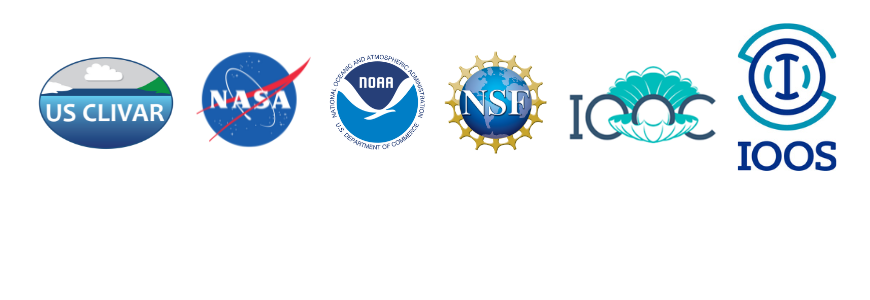Optimizing Ocean Observing Networks for Detecting the Coastal Climate Signal Workshop
Motivation
Society experiences changes in the global ocean through the ocean’s boundaries. While climate change is certain, its effects in coastal and ocean boundary regions vary considerably geographically. The climate signal is the link between the broader changing climate and the resulting events, which manifests differently in coastal areas than in the open ocean. The U.S. territorial waters encompass 11 Large Marine Ecosystems (LMEs) that range from the cold waters of the Arctic to the tropical waters of the Pacific Islands, and include the Great Lakes that are the world’s largest system of freshwater lakes. As climate change leads to a warmer ocean, LMEs will be exposed to increasing stressors, and coastal communities will be more vulnerable to the effects of climate anomalies. Under these circumstances, it is key to develop a framework that improves the link between larger scale climate variability in the open ocean and its signatures along the coasts.
Objectives
This workshop will bring together operators and users of coastal ocean observing systems to identify the key science issues that need to be resolved to detect and respond to coastal climate change in the coming decades. To achieve this, the workshop will:
- Identify opportunities to accelerate the co-design and optimization of observing systems for detecting the coastal climate signal by integrating knowledge, data, and approaches.
- Foster collaborations between the climate science, operational oceanographic, research, and resource management communities to inform first responder agencies in the management and mitigation of coastal vulnerability to both event-scale and long-term climate changes.
- Bridge gap between global climate research and regional operational oceanography at the coasts.
Target Participants
Attendance is open to all, with participation sought from the ocean and climate science, coastal oceanography, biogeochemistry, marine science, modeling, subseasonal to decadal, climate prediction, and climate assessment communities. The workshop will be inclusive of attendees across career stages and identities. Students and early career professionals are encouraged to participate in leadership roles such as speakers and facilitators.
Workshop Format
The two-and-a-half-day hybrid workshop will focus mainly on discussions rather than formal presentations. There will, however, be a series of synthesis talks on overarching themes followed by regionally-oriented breakout group discussions as well as poster sessions that highlight efforts to identify coastal climate signals. The breakout sessions will be tasked with specific deliverables such as identifying gaps, developing recommendations to improve observing systems, and suggesting how to enhance coordination and collaboration. An evening seminar will be held for students and early career professionals intended to build awareness and interest in coastal oceanography.
Outcomes
Deliverables include:
- A workshop report that articulates ways for optimizing global and coastal observing systems to capture the coastal climate signal and address society’s needs for better coastal climate information.
- Identification of coastal climate signals and specific observational metrics needed to track local and regional impacts, including ecosystems and human health.
Relevant Materials
- Detecting the Coastal Climate Signal: The IOOS Contribution
- Research Challenge on Climate at the Coasts: A US CLIVAR White Paper
Scientific Organizing Committee
Robert Todd, Woods Hole Oceanographic Institution (Co-chair)
Nathalí Cordero Quiros, Ensenada Center for Scientific Research and Higher Education (Co-chair)
Seth Danielson, University of Alaska Fairbanks
Manu Di Lorenzo, Brown University
Tommy Moore, Northwest Indian Fisheries Commission
Jan Newton, University of Washington
Dan Rudnick, University of California San Diego
Phil Thompson, University of Hawaii
Program Organizing Committee
Alyssa Cannistraci, US CLIVAR
Mike Patterson, US CLIVAR
Cassie Wilson, UCAR Center for Ocean Leadership
Nick Rome, UCAR Center for Ocean Leadership
Shelley Rabern and Keri Dawn Solner, UCAR CPAESS
Workshop Sponsors


